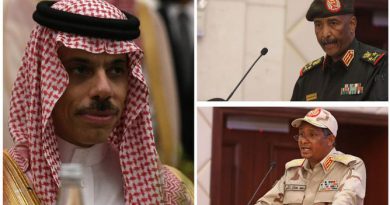Average age of Modi’s cabinet is 60. Will they understand India’s restless youth?
by Jaiveer Shergill
Unemployment, lack of skills, poverty and alienation are the problems faced by the youth of India. They are worried about misalignments between their career aspirations and industry demands.
India wants to reap the benefits of its demographic dividend, empower its youth, provide jobs, but one of the youngest democracies in the world is still struggling to get enough young Parliamentarians to represent it. Just look at the recently concluded Lok Sabha elections. Only 12 per cent members of the current Lok Sabha are under 40 – this in a country where 65 per cent of the population is below 35.
Can the newly sworn-in 57-member ministerial team of PM Narendra Modi with an average age of 60 years (youngest minister being 43 and oldest being 73) fulfil the aspirations of ‘young India’ craving for employment?
Worldwide lack
The Latin saying “Nihil de nobis, sine nobis (nothing about us without us)” is used to communicate the idea that no policy should be made in the absence of the community affected by that policy. The same should apply to youth issues in India’s ‘ageing’ Parliament.
But it must be said that the idea of youth in politics is the most romanticised idea not only in India, but the world over. But their rising interest in politics is not supported by their abysmal representation in Parliament and this impacts the quality of democratic governance. The average age of parliamentarians globally is 53, while the average age of the newly elected Lok Sabha is 54. The Inter-Parliamentary Union (IPU) in 2016 had revealed some startling facts: Young people under 30 make up less than 2 per cent of the world’s MPs; about 30 per cent of the world’s single and lower houses of parliament have no MPs aged under 30; more than 80 per cent of the world’s upper houses of parliament have no MPs aged under 30; and not a single upper house of parliament anywhere in the world has more than 10 per cent of its members under 30.
A declining phenomenon
In India, this assumes an added significance because of the huge demographic dividend we urgently must harvest. But political representation of youth in Parliament and state legislatures is not proportionate to their electoral strength.
The number of young MPs is declining. The first two Lok Sabhas had as many as 164 young MPs (in the age group of 25 to 40 years) (Parliament of India Publication). Till 1984, the number reduced with successive elections, but never went below 100. In contrast, from 1984 to 2009, it was always below 100, with the exception of 1996 when it was 102. In the 15th Lok Sabha, there were 79 MPs below the age of 40 and the numbers reduced to 71 in the 16th Lok Sabha, when Narendra Modi came to power.
Another disturbing figure is that out of total candidates fielded by the two national political parties – the BJP and the Congress— less than 10 per cent candidates were under the age of 40. Youth political participation needs go beyond token gestures. Otherwise the chasm between the structure of governance and the consumers of governance will further widen leading to disillusionment and disappointment.
Beyond numbers, the young lawmakers must also be allowed to speak about the concerns of the youth, not just mouth the lines of the old-guard party structures. They must raise issues of the 21st century, not just of perceived wrongs of the history. This becomes tough in the Westminster model of parliament, where forming effective US-style caucuses are difficult. But that should be the goal.
What this cabinet can do
While hoping for the situation to improve in the next Lok Sabha, it is important to weigh the newly formed cabinet on the scales of ground reality and expectations. Millions of young people are jobless and hopeless.
Unemployment, lack of skills, poverty and alienation are the problems faced by the youth of India. They are worried about misalignments between their career aspirations and industry demands. According to a World Economic Forum report, over five million jobs will be lost over the next five years due to economic and demographic reasons.
The majority of India’s youth will not bring demographic dividend unless and until they are productively employed. The official diagnosis proves that Indian economy is infected with the disease of a 45-year high unemployment and five-year low GDP. Job intensive sectors like agriculture, construction and manufacturing are on declining path.
Belying the Make in India and Ease of Doing Business claims, the health of the Indian economy is not in a good shape. It faces the challenge of creating jobs as the youth enters the workforce by millions each year.
Structural interventions are required to bring the Indian economy back on track. Our strategies must factor in the expectations and aspirations of young India. Will the newly formed cabinet write the correct prescription to cure the ailing economy or again put these issues to sleep with high doses of hyper-nationalism?
Redefining democracy
From ending poverty to tackling climate change, the world’s future lies in the hands of the young. So, engaging young people in the politics of tomorrow is critical to safeguarding and strengthening democracy worldwide. Fresh ideas and new leadership can bring positive changes in governance.
Like Serbia, in India we can have political leaders’ programmes to identify and select youth leaders. Structural interventions along with such programmes will ensure greater participation.
Article first published in ThePrint.in
The Author is a Supreme Court lawyer and National Spokesperson, the Indian National Congress.



